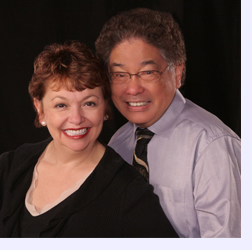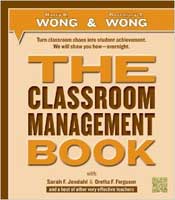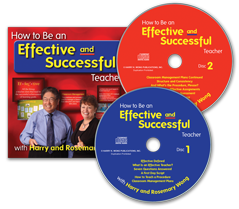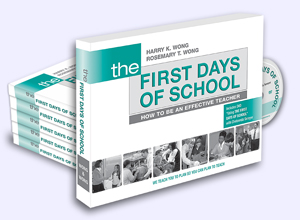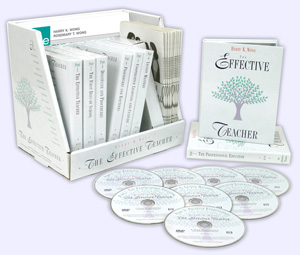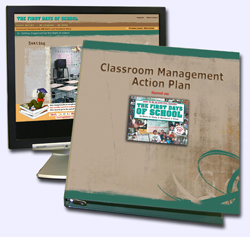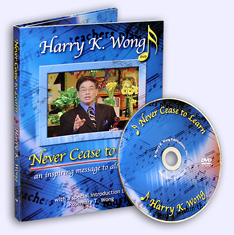|
 |

Special to the Gazette
September 2011
Coaching Teachers to Be Effective Instructors
What does an instructional coach do? Look at “instruction”—the act, process, or art of imparting knowledge and skill. Look at “coach”—to teach. Instructional coaches teach teachers how to be effective instructors. This is the focus of instructional coaching because
Instructional coaches are not guides by the side or mentoring buddies. They coach; they train; they teach. Football season is here. A typical professional football team has 18 assistant coaches. Their job is to impart knowledge and skills, to train and bring out the potential in every player and mold them into a team that achieves success together. Likewise, the instructional coaches in the Caldwell School District teach the knowledge and skills of effective instruction to the teachers. They train to bring out the potential in every teacher to build a professional learning team at the campus they are assigned to. No Teachers Lost The Caldwell School District knows that effective instruction, not programs, fads, or buzzwords, is the keystone to student success and that is why this past year student achievement exceeded the requirements of AYP. Three years ago Caldwell lost 85 teachers. When teachers are effective and successful, and the students are learning, happy, and successful, teachers stay. What’s Caldwell’s “secret sauce?” Elementary director Jonathan Cline, says, “We decided that every school needed an instructional coach to help the teachers become experts in teaching.” Alexis Contos
She sets up a pre-conference which allows the teacher and her to establish a focus or goal throughout the coaching process. She models strategies within that focus and encourages the teacher to adapt the strategy to their own classroom practice. A debriefing session follows to discuss the success of the new strategy. But, the cycle does not stop there as the focus or goal is always to continue to improve the teacher’s instructional effectiveness. Alexis believes that as a coach, it is extremely important to build trust with every teacher in the building. She does this by becoming vulnerable herself, as this allows others to be open and vulnerable as well. Alexis remembers fondly in her first year as a coach, when she began to work with a teacher that had only been in the profession for a year or so. She observed in her classroom, giving her non-evaluative immediate feedback on what was observed. Alexis was constantly in her room modeling strategies for her to use and excited to do so. They worked together that year and the new teacher blossomed into the remarkable teacher that she is today. Alexis says, “It has been one of my greatest experiences, to be able to be a part of a teacher’s journey on developing and honing one’s skill as a teacher.” Therein is the difference between a mentor and a coach. A coach’s role is job-embedded within a staff. The coach is available all the time. The coach teaches and trains repeatedly. The coach encourages constantly. Jim Knight, writing in the Winter 2009, Journal of Staff Development validates the efficacy of instructional coaches.
Alexis takes pride in using her own personal development and uses it for the professional development of each teacher as well as the school itself. She not only coaches, she is part of the school’s professional learning community. Alexis says, “This is the most collaborative school that I know. All of the teachers take pride in all of the students’ achievements and work together to do whatever it takes to meet the goals of our students. In 2009 Sacajawea Elementary School was presented with the Distinguished School Award. Each teacher has worked hard and reflected on their own teaching to become the best educators that they can. I believe that I also had a part in that.” Lori Furgerson
She has taken the time to build relationships with teachers and she says that they are very open to working with her and becoming better in their field and are always receptive to learning new things and growing. As is the Caldwell School District expectation, Lori is in the classroom 75 percent of the time doing observations and modeling. With 20 teachers and 4 paraprofessionals, Lori’s schedule is very busy, but purposeful with observations focusing on reading, math, and language arts instruction and classroom management. She provides professional development for teachers in these areas. The principal and all the instructional coaches meet weekly with each grade level to look at data and discuss students and interventions. Lori likes to talk about a teacher who was really struggling with classroom management and the reading program. She was in her room a minimum of two days a week observing and modeling. The teacher was very eager to improve and they would meet for a pre-conference, where they discussed what the focus was going to be. They began with classroom management, since learning can’t happen without it. Lori modeled for her the basics, from the procedure for how to bring students in to the classroom from recess to the procedure for how to teach students transitions. A procedure for transition can be found on pages 200 and 201 in The First Days of School. After the modeling, they met for a debriefing session to discuss how it went and Lori answered any questions the teacher had. Several times Lori went in and they did side-by-side coaching. When the teacher had her management down pat, then they moved to the routines of the reading program. Lori says, “By the end of the year I had tears in my eyes at the improvement this teacher had made. It was truly remarkable at the improvement of her classroom instruction from the beginning of the year to the end. I often times tell her I wish I had videotaped those first few months so she could see the drastic improvement she made. That is what my job is all about, working with teachers to help them become the best they can be.” Lori also says, “I can honestly say I love my job.”
Rose came into instructional coaching at three Caldwell high schools wondering how high school teachers would respond to having a full-time, on-site instructional coach, not to mention one whose professional experiences were at the elementary level! Rose had had 15 years of teaching experience, had led a statewide implementation of a reading reform model, and had earned National Board Certification. She felt she could do it and was ready for the challenge. Rose shares the key to her success at the high schools. “I reminded myself that quality instruction is not grade level specific. The effective strategies and best practices that you would observe in a first grade classroom are the same effective strategies and best practices that you would observe in a senior English class. I may not be able to deliver a quality chemistry lesson, but I know that I could help the chemistry teacher design lessons to include instructional strategies that would produce results for students. So, that being the case, I considered it an honor to be asked to support high school teachers as they learn about and implement new teaching strategies. Yes, I took the job and have never regretted it!” Although Rose is expected to be in the classroom observing and supporting 75 percent of the time, the real challenge at the high school was that at the secondary level there are not specific programs and program protocols (such as a reading or math program that all teachers are using) that she can help teachers implement. Because of the traditional, content specific structure of high school, Rose learned that her coaching and teacher support more often came in the form of individual assistance and/or whole group professional development centered around designing a standards-based lesson and using instructional strategies that promote student engagement, higher level thinking, and assessment of learning from each student every day. Rose says, “Our coaching objective was to focus on strengthening our understanding and implementation of the components of standards-based lessons.” Many of the conversations Rose had with teachers centered around identifying and writing content and language objectives for their lessons, how to incorporate cooperative learning strategies, brainstorming ideas about how to improve classroom management procedures, the importance of daily reflection and assessment for student learning, and how to use data when planning lessons and differentiating instruction for students. Rose happily says, “As an instructional coach in a high school, I have been both teacher and learner—as an educator; that’s what it’s all about!” The Coaching Is Consistent It is quite obvious that all the coaches, and there are more than the three highlighted, in the Caldwell School District have been trained to follow a consistent protocol. All the coaches work closely with the building administrators. While this is an expectation, it is also an area where there are clearly defined boundaries to separate coaching observations and modeling from administrator observations and evaluations. All debriefing feedback is not evaluative and is given exclusively for the use of the individual teacher to help them grow and learn and progress in their professional learning. Keeping that separation of power—between administrative evaluation and coach helping—is crucial when establishing relationships and trust with teachers. But just as crucial is the relationship between the administrative team and the instructional coach. While the coaches do not discuss individual teachers, they have frequent and lengthy discussions about instruction with administrators. This allows the administration to recommend targeted professional development for teachers or areas to focus on.Another role of the instructional coaches it to help the administrative team have a deeper understanding of the components of standards-based lessons and instructional strategies used by teachers. The focus on standards and effective instructional practices is validated by numerous studies. The research is very specific about student learning:
Schools exist and teachers are hired for one reason only—to help students learn and achieve. The teacher must be an effective instructor and student learning must be at the heart of all decisions made in the school. Thus, the coaches work collaboratively with the administration to plan and deliver professional learning opportunities for the staff based on patterns and needs that are observed in classrooms. It Seems So Obvious, Yet . . . Everything that has been said, demonstrated, and implemented for teacher and student success seems so obvious, yet what the majority of schools and school districts do to their newly hired teachers is, they are assigned a mentor and not an instructional coach with a defined purpose. There are districts that assign one mentor to 12–15 teachers to “visit,” much like a social worker or parole officer, once or twice a week for one hour. When asked what they do, the mentor says "the mentee and I have reflective conversions." Where is the focus? Where is the instruction? Where is the delivery of skills to help the teachers better their instruction so students can grow and achieve? Most mentoring relationships lack any structure, are not monitored, and have no adequate follow-up procedure. The mentor may not have been trained and may not teach at the same grade level or academic subject. The mentoring relationship at times has no coherence or collaboration to any state/district/school curriculum, plan, goals, or standards. Jonah Rockoff of Columbia University reported in 2008 that over one million new teachers received mentoring between 1993 through 2003, but we know little about the magnitude of the benefits derived from the mentoring or how the impact of mentoring varied across different types of programs. Susan Moore Johnson at the Harvard Graduate School of Education says that mentoring is all the rage. There is some sort of deep hope on the part of everyone that if you get the right mentor, your life will be saved and you will become the teacher you always wanted to be. But the truth is that mentoring pairs seldom are anything but haphazard. They are driven by the schedule. They are often not pairs of people who really know the subjects that the individual is teaching. For seven pages of research summary on the ineffectiveness of mentoring,
The Caldwell School District is using researched based practices in coaching to produce results for teachers and students. What Works to Produce Effective Instruction The emphasis is on student learning with coaches coaching for learning. The work coaches do is job-embedded, which is how teachers learn best to become skilled and effective. A coach's path is prescribed and goal oriented. For additional references on how coaches coach, see
Teachers Want to Be Effective A district's responsibility is to hire qualified teachers and then train them to become even more effective teachers. New teachers want to be effective teachers. They want to be as effective as the most seasoned veteran teacher on the staff. New teachers want more than a job. They want support. They want guidance. They want to contribute to a group. They want to make a difference. Effective teachers make the difference. Trained teachers are effective teachers. Districts that provide structured, sustained training for their teachers achieve what every school district seeks to achieve—improving student learning through effective teaching. Effective districts have coaches that meet with the principal on a regular basis to assess the progress of every teacher and their impact on student learning. In an effective school, everyone functions as a team with all efforts focused on student achievement. The Caldwell School District and its coaches are producing effective instructors. They do it because they want to invest in their students and their community. Your Choice to Be Effective Congratulations if you are fortunate enough to be in a professional environment with coaches and collaboration. You are in a highly effective work setting that believes in the more effective the teacher, the greater the opportunities for student achievement. But we know this is far from the norm in most school districts and so now what can you do. You can Choose to Be Effective! The research behind what makes an effective teacher is known and widely published. It’s up to you to implement it and work with it in your classroom to produce student achievement. Form a collaborative team at your school with a common focus—implementing the techniques of effective teachers. Plan to meet and discuss what is working and producing results with your teams. Discuss also what is not working and plan a path for improvement. Continue to assess your work—all for one reason only—for you to make progress in your growth and development as a highly effective teacher.
|
|||||||||||||||
| |||||||||||||||





